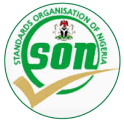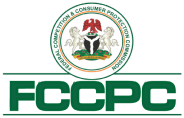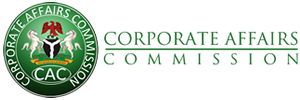,
Good morning, gentlemen of the press. About two years ago when I assumed office as the Director General of NAFDAC, I brought up the issue of fake medicines (now referred to as substandard and falsified medicines) and the goal to lead the Agency toward eliminating substandard, adulterated and unsafe drugs, medical devices, foods and water in the country.
Substandard and falsified medicines have become a global problem that presents enormous public health challenges to National Medicines Regulatory Authorities in both developed and developing countries. Along with other countries, NAFDAC is maximizing the efforts to curb the menace of SFs
The unpatriotic business men/women involved in the illegal manufacture, importation and distribution of substandard and falsified medicines target medicines with high volume of use for the treatment of diseases of public health interest. The classes of medicines targeted include:
- Antimalarials
- Antibiotics
- Antihypertensives
- Anti-diabetic agents
- Life style drugs
The public health implications of SFs are numerous and these include the following:
1) Increased hospital admissions, 2) Prolonged stay in the hospital, 3) Development of resistance (drug resistance or multi-drug resistance or cross resistance), 4) Treatment failures and death. All these lead to:
- Increased cost of controlling disease
- Increased out of pocket expenses
- Increased human suffering
- Loss of confidence in the healthcare system
- Increased burden on the healthcare system
Looking back, I can say with confidence that our goal to curb the menace of SFs has become crispier than ever based on what we have been able to achieve and where we intend to be in our strategic plan as a regulatory agency.
One of our strategic plans is to reduce substandard and falsified medicines to not more than 5% prevalence in Nigeria by year 2025. Globally, the prevalence is about 10%. The last data we have on prevalence of SFs in Nigeria is 16.7% but that was about 14 years ago. Thus, it is high time we did the survey on the prevalence.
NAFDAC has been highly proactive and vigilant toward curbing SFs in the country in all efforts to safeguard the health of the Nigerian populace. In a determined effort to combat falsified medicines, NAFDAC has deployed multifaceted strategies.
WHAT WE HAVE DONE OR ARE DOING?
Enforcement of Regulation and control of APIs imported into the country to ensure they meet the required standards for manufacturing of drugs
NAFDAC started in 2019 to enforce regulation and control of active pharmaceutical ingredients of all drugs, imported or manufactured locally by requesting for submission of the drug master file that has all the history of processing and safety of the drugs.
In addition, we are making it mandatory (from January 2020) to identify and test the active pharmaceutical ingredient for all imported and locally manufactured drug products to ensure compliance with international standards for starting materials and making sure they are actually used during production processes.
Beside safeguarding the health of the people, this regulatory control will also build confidence in Nigerians about the medicines that are available in the country since SF medicines can come in through importation.
Ensuring good manufacturing practices (GMP) compliance by the manufacturers of pharmaceuticals companies through adequate oversight by the Agency
In 2018, we started a country-wide inspection of one hundred and sixty-five (165) companies in Nigeria using international standards in order to ascertain GMP compliance. Part of GMP is the use of appropriate manufacturing equipment and facilities by manufacturers to ensure adequate controls and measures are in place for production of quality products
This GMP Road Map is extremely important because SF products can occur during production. This can be due to poor GMP of the factory, bad raw materials, poor packaging and bad formulation.
Reduction in Number of Registered Imported Products and Encouraging Local Manufacturing and Innovation
In March 2019, NAFDAC instituted the Five Plus Five Validity (5+5 Validity) for several reasons among which is dumping of drug products in Nigeria: This occurs through multiplicity of registration of same drug for the same dosage form (Tablets, Suspensions, etc.) or product that has resulted in the glut of some products and possible SFs.
Having known that significant amounts of SFs are imported as unregistered, or registered but with compromise on the content after approval to become substandard, one of the drives of my administration is to encourage local manufacturing for products that can be manufactured in Nigeria. A new policy to achieve this is through the 5+5 Validity as explained below:
NAFDAC advises importers whose products have enjoyed 5-year registration and are due for another 5-year renewal to produce blue print of migration to local manufacturing or to partner with indigenous manufacturer for local production, if they so wish. There must be evidence of migration by the 8th Year with a full blue print. Submission of the full blue print would allow for the last and 3rd Five-Year renewal. For newly registered imported product, the validity procedures will be similar.
If there is more than enough capacity to meet the in-country demand, the product may not enjoy the 5+5 Validity. The regulatory control will be done with the understanding of ensuring drug security, reducing unemployment and contributing positively to the growth of the economy.
NAFDAC now encourages innovation from local manufacturers by giving 5-year market exclusivity to the innovator company that has the capacity to meet the country demand, during which there will be no approval of a similar product.
Pre-Shipment Provisional Registration of Imported Medicines and other NAFDAC Regulated Products.
In order to ensure that products manufactured, imported, distributed and sold after registration or renewal of registration conforms to quality specifications or are not altered to substandard and falsified products after registration, NAFDAC initiated the pre-shipment provisional registration.
In the second quarter of 2019, NAFDAC informed manufacturers and manufacturers’ representatives that medicines and other regulated products approved by the Agency for registration and renewal will henceforth be granted only provisional registration pending confirmation of quality of two batches/lots of the products.
Deployment of Cutting-Edge Monitoring Technologies.
NAFDAC has gained international recognition in the use of cutting-edge technologies to fight substandard and falsified medicines and other unwholesome regulated products. These technologies include:
- Truscan (Raman Spectroscopy)
- GPHF Minilab
- Mobile Authentication Service (MAS).
More Focus on the Function of the Laboratories to Test Quality of Medicines
NAFDAC have and operates four laboratories that have ISO-17025 accreditation across Nigeria to test the quality of medicines, vaccines test kits and other biological products.
NAFDAC has overhauled its testing of products coming from China and India by re-certification of the clean report and analysis agents (CRIA) as well as the laboratories from those countries in order to ensure that the imported products are tested by qualified laboratories. Part of the restructuring is streamlining the pre-shipment testing with testing done post-shipment.
Continuous Post-Marketing Monitoring of Quality of Medicines.
A study of counterfeit and substandard medicines in Nigeria conducted by NAFDAC in collaboration with World Health Organization (WHO) and Department for International Development (DFID) in 2005 revealed that counterfeit medicines stood at 16.7% in 2005 as against 40% in 2001.
Monitoring of antibiotics, antimalarials and antidiabetics that are easily falsified was done in 2010-2012 using Truscan® device. From the total number (5790) that were tested, 6.4% failed.
Another study on antimalarials which was conducted as Round 1 by NAFDAC in collaboration with National Malarial Elimination Program (NMEP), National Supply Chain Management Program (NSCMP) and United States Pharmacopeia (USP) in 2015 revealed that 3.6% failed out of the 800 samples. Round 2 study conducted in 2016 showed a failure rate of 4.3% out of 900 samples. Rounds 3, 4 and 5 studies revealed <2% failure rate from a total number of 897, 741 and 907 samples respectively.
As part of the continuous monitoring of quality of medicines, NAFDAC did a study on quality of Oxytocin injection conducted in collaboration with USP in 2016. The study revealed that out of 162 samples 74.07% failed. The failure rate was due to poor storage conditions aside from the quality. As a result of the high failure rate, NAFDAC implemented regulatory actions that included mop up of poorly stored Oxytocin injection from distribution chain, strict monitoring of storage and transportation facilities and heightened awareness to the sensitivity of the drug to high temperatures.
The Agency also collaborated with USP to provide technical support to Juhel Pharmaceutical Limited. The support resulted in local manufacturing of quality assured Oxytocin injection in Nigeria by the company.
One of the focus and priority areas of NAFDAC is to reduce the level of substandard and falsified medicines to the barest minimum through effective collaboration with relevant stakeholders.
Increased Enforcement Activities on SF Medical Products From November 2017 – November 2018
- The Agency participated in the Operation Mirage, a program of the World Customs Organisation, carried out simultaneously in about fourteen countries and designed to collaborate with the Customs in the war against substandard and falsified medical products. The street value of the substandard and falsified medical products seized was six hundred and eighty-four million Naira (₦684,000,000.00).
- Twelve different individuals were caught with large amounts of SFs, some of which have been destroyed. Some of the people are being investigated or prosecuted or have been sentenced. However, the sentences are not stiff enough to result in deterrence.
- The Agency raided two warehouses located within in a residential area in Igbo Amaeze Street, Awada Obosi, Onitsha, Anambra State where substandard and falsified versions of popular brands of antimalarial and antibiotics were stored. One hundred and nine (109) cartons of assorted products including Lincocin Capsule, Augmentin tablets, Artesunate Tablets, Panadol Extra, Cafcol 250mg Capsules, Buscopan, Laridox Tablets, Postinor 2 tablets, Coartem 20/120, Lofnac (Diclofenac Sodium) and Aldomet (Methyldopa) were evacuated. Investigation is ongoing to unravel the owners of the products.
- NAFDAC intercepted a truck, with Reg No. Delta AXB715ZH, conveying substandard and falsified medical products enroute Kano. The products, worth about six million naira (N6,000,000.00), included Rebok Paracetamol inj., Aldox (Doxycycline 100mg), Buscomac 10mg and Sterile water for injection.
- The agency has destroyed substandard and falsified medical products worth more than three billion naira (N3,226,681,737.00).
- The Agency in conjunction with the Nigeria Customs Service (NCS) commenced the destruction of seized consignments of substandard and falsified medical products (especially Tramadol). A total of twenty-four containers (24x40ft containers) of the products have been destroyed.
Adoption of WHO Rapid Alert System
NAFDAC has adopted the WHO Rapid Alert System for surveillance and monitoring of substandard and falsified medicinal products in a bid to rid Nigeria of such products. The Agency publishes Public Alert Notices (https://nafdac.gov.ng/safety-alerts/) on its websites to alert the members of the public, especially health care providers on circulation of confirmed cases of substandard and falsified medicines.
Sustained Public Enlightenment
NAFDAC is employing many avenues to enlighten the public of SFs. Some of efforts are as follows.
- Sensitization and awareness programs: NAFDAC and your Health, aired on NTA, Channels TV and TVC and radio – FRCN
- NAFDAC Consumer Safety Club
- NAFDAC – NYSC Community Development Service
- Consultative fora with stakeholders
Inter-Agency, Inter-Professional Collaboration and Community Efforts
The collaboration with sister agencies such as Pharmacists Council of Nigeria, Pharmaceutical Society of Nigeria, Nigerian Association of Patent and Proprietary Medicines Dealers, Nigeria Medical Association, National Institute for Pharmaceutical Research and Development, Standards Organization of Nigeria, Federal Competition and Consumers Protection Commission (FCCPC) are very critical for curbing SFs. Equally important is close collaboration with Nigeria Customs Service, National Drug Law Enforcement Agency, Department of State Services, Civil Society and other professional bodies.
NAFDAC plans to work closely with the pharmaceutical regulatory and professional bodies to jointly call for action in curbing SFs.
The Religious Communities, Traditional Rulers, other Community-based Organizations and Concerned Citizens are also very critical to curbing SFs. Several months ago, a citizen reported lack of expect effect of an antibiotic, the person reported to NAFDAC. The product was tested and found to have zero content of drug. Investigation was carried out and it resulted in a raid at the Onitsha Bridge Head
NEXT STEPS
Expanded Post-Marketing Surveillance and Seizures of Unregistered Pharmaceuticals and Medical Products
This is being planned to ensure that products that were registered are monitored so that they are not later manufactured or imported as SFs, and also to mop up unregistered products through NAFDAC’s Enforcement Directorate.
Plans are underway to commence trans-national border cooperation between NAFDAC and border countries to strengthen the post-marketing activities in both countries, reduce SFs and improve the quality of medicines in such communities.
The Agency does not have enough vehicles and staff but she is working with different arms of government to acquire needed vehicles and staff for this activity that would protect the health of Nigerians.
Dismantling of the Open Markets and Provision of Credible Alternatives
This was supposed to have taken place December 2018 from the directive of former Hon. Minister of Health. Attempts will be made for credible alternatives to dismantle open markets. Plans are underway to drastically decrease demand for unregistered pharmaceuticals and continuous plugging of the supply sources
Procurement of Locally Manufactured Pharmaceuticals by Government
NAFDAC has become stronger as a regulatory agency and more efforts are being made to further strengthen the Agency. This has resulted in more stringent inspection of all the local pharmaceutical companies in order to increase consumer confidence. Therefore, procurement by government should focus more on local manufacturers because they are more accessible to be sanctioned
Expansion of Pharmacovigilance and Post-Marketing Surveillance (PV/PMS) Directorate
As a matter of urgency, the PV/PMS directorate will be expanded as soon as the government approves the Agency to do more recruitment of staff. Expansion of pharmacovigilance program with staff and tools to report adverse events that may be linked to SFs will enable health systems, medical doctors, nurses and pharmacists to do the reporting, thus leading to alerts, recalls and mopping of such products from the market. Some of the activities that will be carried out include:
- Regular post-marketing surveillance of medicines at retail premises level followed by quality control detection and tests of these medicines.
- Periodic survey of medicines in hospitals and at Federal and State Medical stores all over Nigeria. As earlier mentioned, in the past two years we have carried out surveys jointly on essential medicines such as Anti-malaria, Anti-tuberculosis, Mother and Child Health products, Oxytocin with local and international collaborators such as WHO, Catholic Relief Services, USP, etc.
Advice to Public
- The public is advised to refrain from buying medicines on the internet.
- People should always look out for NAFDAC registration number on medicines before purchase
- The physical appearance of medicines such as should be checked to see if there are noticeable differences compared to what they are used previously.
- Date markings on the products should always be cross-checked.
- Always report suspected SF to nearest NAFDAC office.
For Complaints: 0800-1-NAFDAC (1800-1-623322)
Thank you
Prof Mojisola Christianah Adeyeye
Director General






